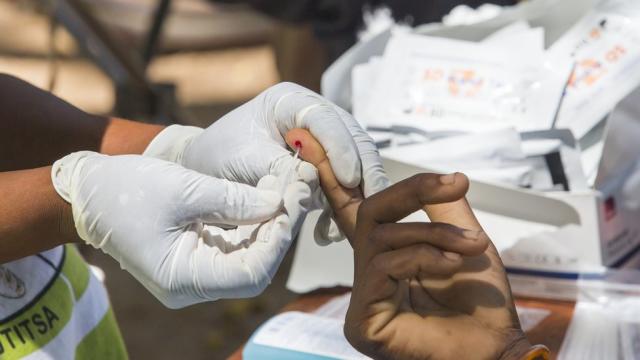Cape Verde has been declared malaria-free, marking it as the third African nation to achieve this status, as reported by the World Health Organization on Friday.
Despite the continued impact of malaria on the African continent, Cape Verde, an Atlantic archipelago with approximately 500,000 inhabitants, follows in the footsteps of Mauritius in 1973 and Algeria in 2019.
To attain malaria-free certification from the WHO, countries must demonstrate the interruption of domestic transmission for at least three consecutive years. A total of 43 countries worldwide have received this certification.
WHO Director-General Tedros Adhanom Ghebreyesus commended the government and people of Cape Verde, saying, “WHO’s certification of Cabo Verde being malaria-free is testament to the power of strategic public health planning, collaboration, and sustained effort to protect and promote health.”
While the WHO estimates that malaria caused 608,000 deaths globally and infected 250 million people in 2022, it remains a significant health challenge in Africa, accounting for 95 percent of deaths and 94 percent of infections in 2021. Children under five constituted 80 percent of malaria-related deaths in Africa.
Matshidiso Moeti, WHO Regional Director for Africa, praised Cape Verde’s achievement as a beacon of hope, demonstrating that malaria elimination is achievable with strong political will, effective policies, community engagement, and multi-sectoral collaboration.
Malaria, transmitted through infected female mosquitoes, is most prevalent in tropical regions and can range from flu-like symptoms to fatal outcomes within 24 hours, depending on the strain.
Prevention efforts have traditionally focused on mosquito nets, preventive medicines, and insecticide-based eradication campaigns. Since 2021, the WHO has recommended two different vaccines.
Cape Verde’s malaria-free status is not only a public health triumph but also holds potential economic benefits. The certification is expected to attract more visitors and boost socio-economic activities, particularly in a country where tourism contributes approximately 25 percent to GDP.
Cape Verde’s journey toward malaria elimination dates back to the 1950s when all its islands were affected. Insecticide spraying led to initial eliminations in 1967 and 1983, but lapses caused the disease’s resurgence. Since 2017, Cape Verde has been malaria-free on the islands of Santiago and Boa Vista.
The national objective of malaria elimination was established in 2007, culminating in a strategic plan from 2009 to 2013.
The plan emphasized expanded diagnosis, early and effective treatment, and thorough case reporting and investigation, with Cape Verde maintaining vigilance even during the COVID-19 pandemic.
To prevent imported cases, international travelers and migrants received free diagnosis and treatment.
Ada Peter



























